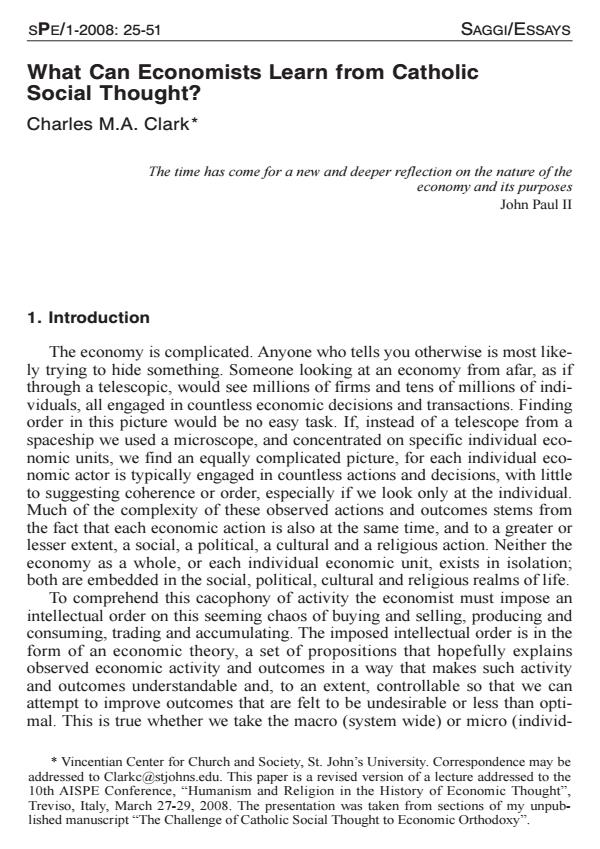What Can Economists Learn from Catholic Social Thought?
Titolo Rivista STORIA DEL PENSIERO ECONOMICO
Autori/Curatori Charles M.A. Clark
Anno di pubblicazione 2008 Fascicolo 2008/1 Lingua Italiano
Numero pagine 27 P. 25-51 Dimensione file 94 KB
DOI
Il DOI è il codice a barre della proprietà intellettuale: per saperne di più
clicca qui
Qui sotto puoi vedere in anteprima la prima pagina di questo articolo.
Se questo articolo ti interessa, lo puoi acquistare (e scaricare in formato pdf) seguendo le facili indicazioni per acquistare il download credit. Acquista Download Credits per scaricare questo Articolo in formato PDF

FrancoAngeli è membro della Publishers International Linking Association, Inc (PILA)associazione indipendente e non profit per facilitare (attraverso i servizi tecnologici implementati da CrossRef.org) l’accesso degli studiosi ai contenuti digitali nelle pubblicazioni professionali e scientifiche
What Can Economists Learn from Catholic Social Thought? (by Charles M.A. Clark) - For most of the 20th Century economists have tried to eliminate ethical analysis from economic theory. This has been to the detriment of economics, because ethical analysis is an essential part of economic behavior. Catholic social thought examines economic and social life from an explicitly ethical perspective, the perspective of the Gospels. It is the argument of this essay that economists can learn a great deal from the Catholic social thought tradition, especially how to examine economic issues based on a view of the human person grounded in human dignity rather than the narrow and unrealistic rational economic man model widely used. Keywords: Catholic social thought; Religion and economics; Social values; Ethics and economics.;
Charles M.A. Clark, What Can Economists Learn from Catholic Social Thought? in "STORIA DEL PENSIERO ECONOMICO" 1/2008, pp 25-51, DOI: